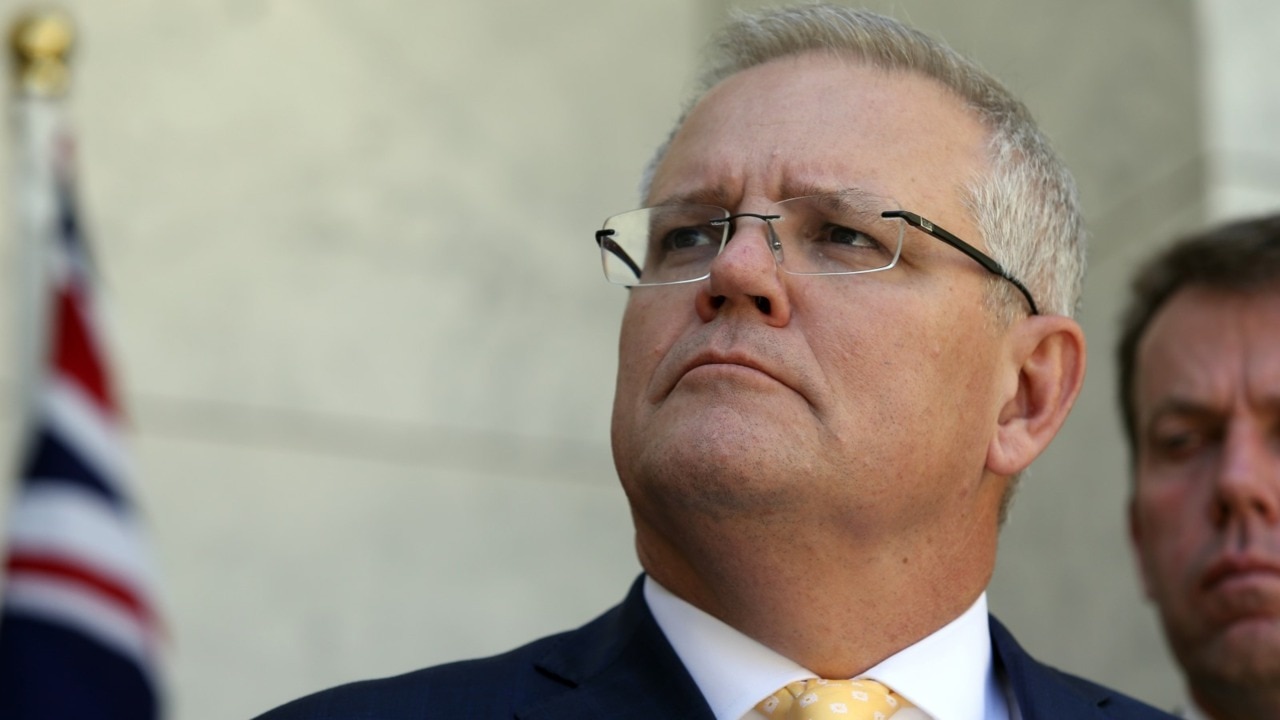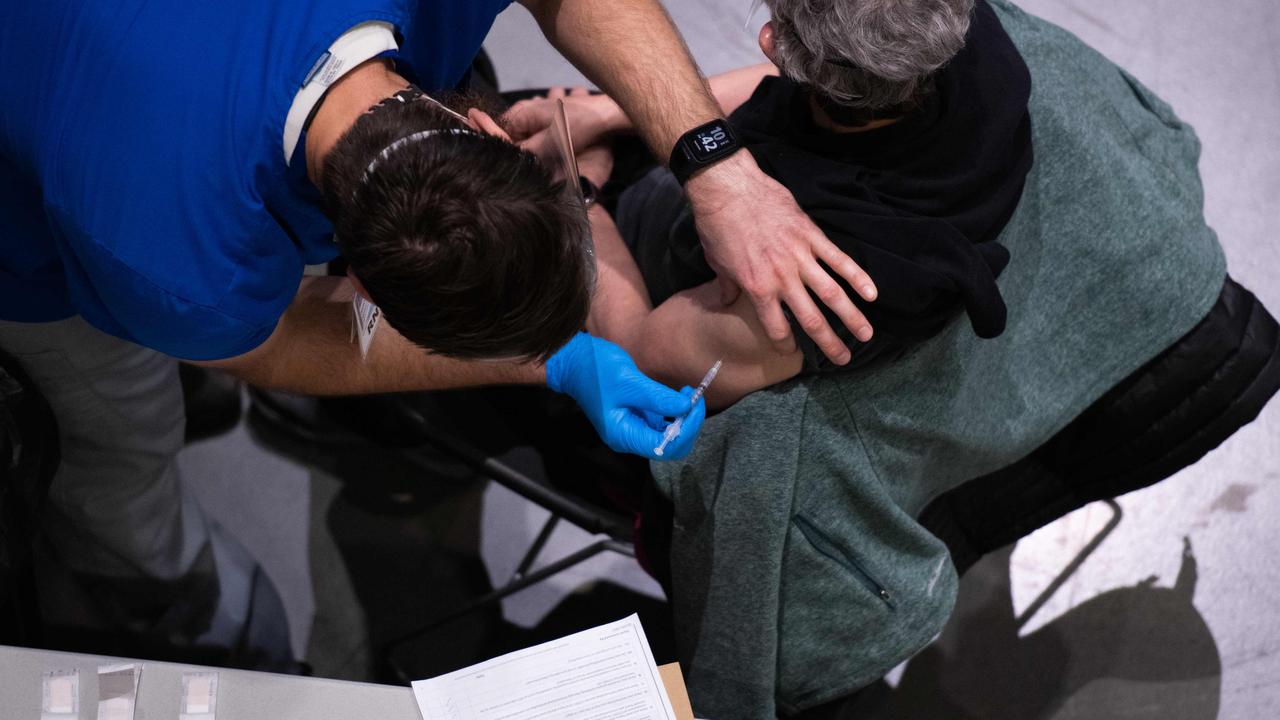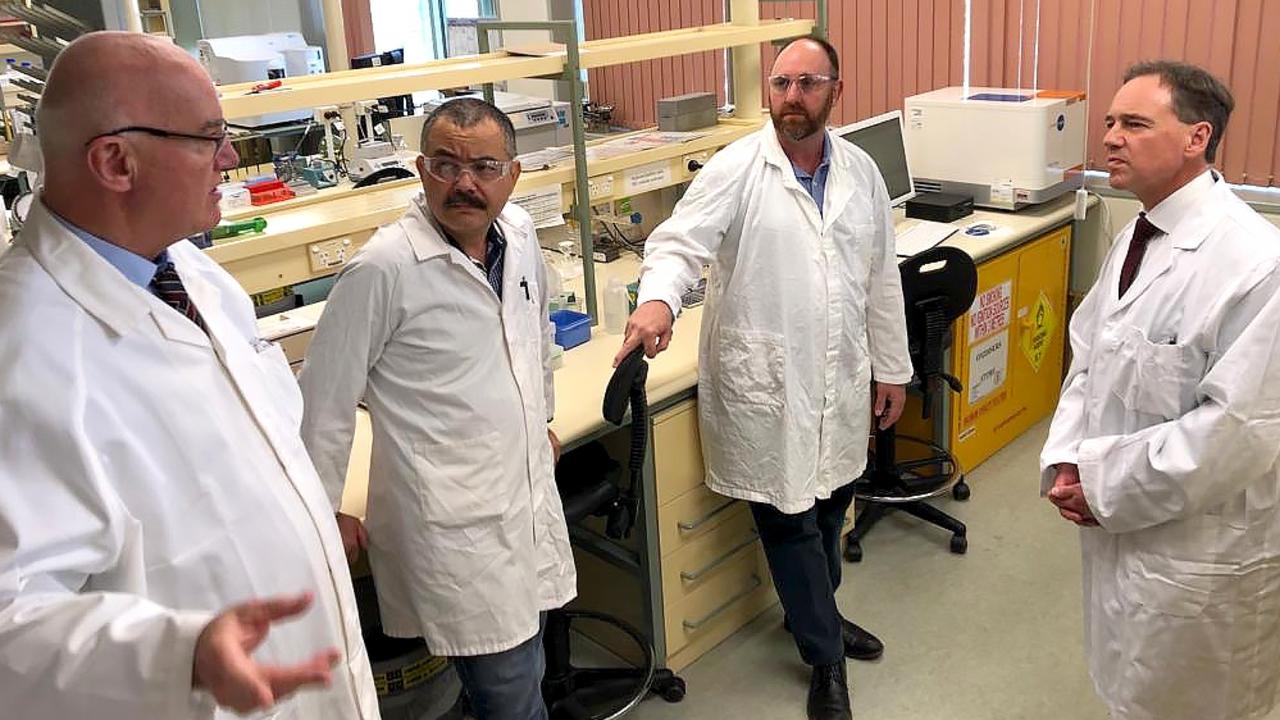Coronavirus: Australia’s first COVID-19 vaccination approved by Therapeutic Goods Administration
The approval of Australia’s first COVID vaccine is great news, but those hoping it’ll see life return to normal sooner rather than later will be disappointed.

Australia’s rapid rollout of the COVID-19 vaccination is now “ready to go” but the Prime Minister has warned the jab is “no silver bullet” and life won’t return to normal overnight.
The Therapeutic Goods Administration has ticked off on the Pfizer vaccine, the first to be approved here, allowing it to be imported from overseas.
From the end of the next month, frontline workers, such as those in hotel quarantine, and health staff will be the first to be vaccinated.
Attention then turns to aged care staff, seniors and other vulnerable communities.
The two-dose regimen could not be imported into Australia until it was approved by the TGA and today’s announcement means millions of doses of the drug can now be imported.
But as health chiefs hailed the vaccination program as “ready to go”, Scott Morrison warned Australians the COVID-19 vaccine is “no silver bullet”.
“It is important to understand that once the vaccine starts, that doesn’t mean you can jump on a plane to Bali the next day,’’ the PM said.
“It doesn’t mean that the masks disappear if that is what the public health arrangements are in a particular state or territory or the quarantine arrangements for return into Australia will end or anything like this.
“Of itself, it is not a silver bullet because there are still limitations to what these vaccines can do.”
RELATED: Follow our latest coronavirus updates
RELATED: Doctors in Australia will bulk bill COVID-19 vaccinations, making it free
There were two surprise announcements today as the PM confirmed the updated timetable for the rollout.
Instead of rolling out the vaccines from mid February, they will now be available from late February following the latest shipping information from the drug company Pfizer.
The vaccine will also be available to some older teenagers after they turn 16 years old. Previously, the health chiefs had indicated it would only be available to adults aged over 18.
But the Prime Minister was unwilling to repeat the goal of having four million Australians vaccinated by the end of March given Pfizer’s new timetable to import the vaccine.
“Look, I think it is difficult to predict these things and the events of recent weeks will mean that a four million position will be something that is going to be achieved in early April as opposed to late March,’’ the Prime Minister said.
“That is the reality of dealing with international arrangements. These are things that are beyond our control with these initial shipments.
RELATED: Pros and cons of each vaccine and when Australians will get them

Health Minister Greg Hunt said it was a proud day for Australia and the scientists and health officials who had worked tirelessly behind the scenes.
“It’s a year to the day since the first case of COVID-19 was diagnosed in Australia and it is worth reflecting on that journey briefly,” Mr Hunt said.
“We know that the world is likely to reach 100 million formally diagnosed cases within the next 48 hours.
“In Australia, there have been seven consecutive days of zero cases of community transmission. At the same time in the last 24 hours, for which there are full figures, there were 570,000 cases globally and 14,000 lives lost and six million cases over that last 10 days and over 125,000 lives lost.
“That comparison is almost unbelievable, the difference between where we are in Australia and overseas.”
Health Department chief Professor Brendan Murphy said it was a “very special day for Australia.”
“We are in this wonderful position of still having no community transmission and yet we have approved, through our normal, proper processes, the first vaccine,’’ Prof Murphy said.
“We can now get that vaccine shipped to Australia, do the batch testing and start our vaccination program, according to our schedule.
“The preparation that is going on for this vaccination journey is huge. We intend to get it right. We have got major logistics issues vaccinating 26 million people. We are ready to go.”
The PM said the modest delays to the importation of the virus was not sparked by other countries jumping the queue and obtaining vaccines purchased for Australia.
“Firstly, no Australian vaccines destined for Australia have been diverted anywhere else. Let me be clear about that. There are challenges for all the big producers around the world for the reasons that I said before,’’ he said.
Mr Hunt said the guidance from Pfizer was always mid to late February and that would depend on the shipping dates.
“We had the shipping dates provided last night,’’ he said. “They reaffirmed to us that they are on track to complete all of their contractual contracts, time frames and obligations.”
“We are expecting that, at this stage, the first vaccinations will be delivered in February and the 80,000 is the conservative figure,’’ he said.
“It could actually be higher but we will presume 80,000 doses per week is the initial distribution and then, as I have said, we are looking at 80,000 plus per week at the initial outset and that is why we are presuming 80,000 would be available.
“Then, as we have indicated, later on we will have AstraZeneca international from early March is the current guidance and then AstraZeneca domestic at the volume of approximately a million a week on the latest advice that we had over the weekend.”
RELATED: PM says Aussie workers won’t be forced to get COVID-19 vaccine to keep their jobs
In a statement, the TGA said provisional approval of this vaccine is valid for two years and means it can now be legally supplied in Australia.
“The TGA has granted provisional approval to Pfizer Australia Pty Ltd for its COVID-19 vaccine, COMIRNATY, making it the first COVID-19 vaccine to receive regulatory approval in Australia,’’ it said.
“Following a thorough and independent review of Pfizer’s submission, the TGA has decided that this vaccine meets the high safety, efficacy and quality standards required for use in Australia.”

It said Australians could be confident that the review process was “rigorous and of the highest standard”.
“The decision to provisionally approve the vaccine was also informed by expert advice from the Advisory Committee on Vaccines (ACV), an independent committee with expertise in scientific, medical and clinical fields including consumer representation.
“The TGA will continue to actively monitor the safety of the Pfizer vaccine both in Australia and overseas and will not hesitate to take action if safety concerns are identified.”




